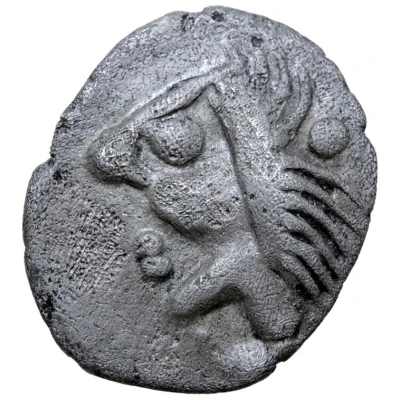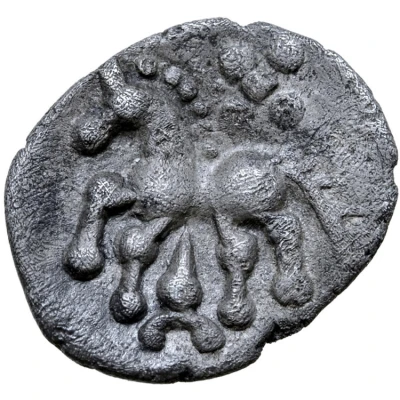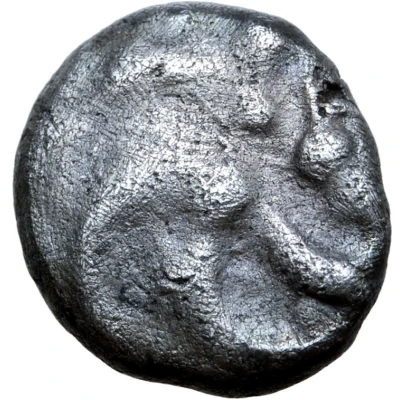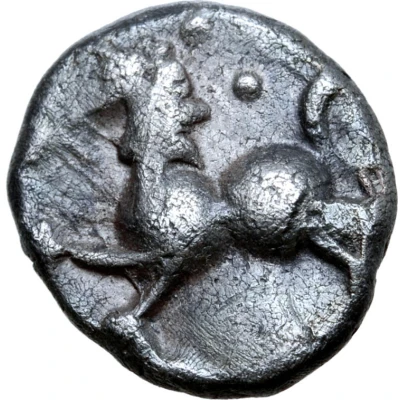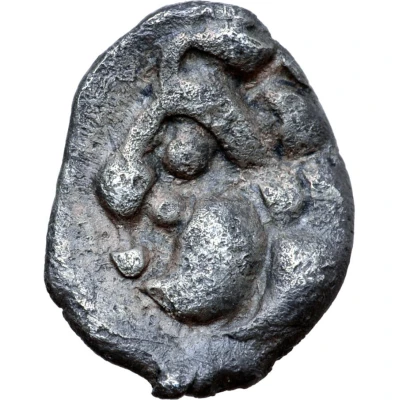
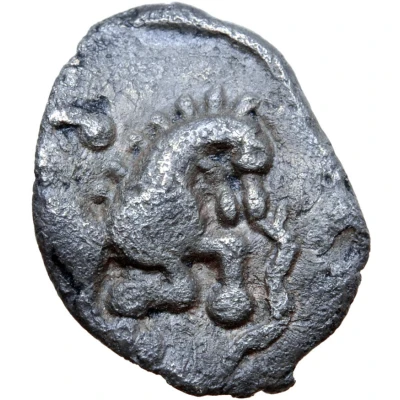

© Roma Numismatics Limited
Quinarius Manching type group A 150 BC - 50 BC
| Silver | 1.27 g | 19 mm |
| Issuer | Vindelici of Germania |
|---|---|
| Type | Standard circulation coin |
| Years | 150 BC - 50 BC |
| Value | Quinarius (0.5) |
| Currency | Drachm |
| Composition | Silver |
| Weight | 1.27 g |
| Diameter | 19 mm |
| Shape | Round (irregular) |
| Technique | Hammered |
| Demonetized | Yes |
| Updated | 2024-10-09 |
| Numista | N#189319 |
|---|---|
| Rarity index | 100% |
Reverse
Horse to right, snake in front, torque above.
Comment
Kellner, Manching pl. 13, 291;Recorded Sales:
• Roma Numismatics Ltd, Auction XVIII, 29 Sep 2019, lot 6; Sold for 200 GBP in Good Very Fine grade;
• Numismatik Lanz München, Auction 64, 7 June 1993, lot 13.
Interesting fact
The Quinarius was a silver coin used in ancient Rome and its territories, and it was worth one-fifth of a denarius, which was the standard unit of currency at the time. The Quinarius was first introduced in 211 BC and was used until the 1st century AD. The coin , the Quinarius (Manching type group A) from Vindelici of Germania, is a rare and valuable example of this coin, made of silver and weighing 1.27 grams. It's interesting to note that the Quinarius was used not only as a means of exchange but also as a symbol of Roman power and influence, and its design and minting process were carefully regulated by the Roman government.
